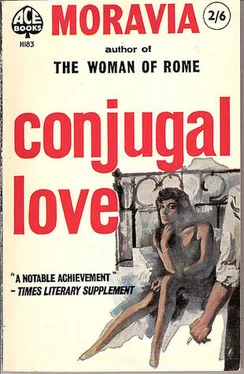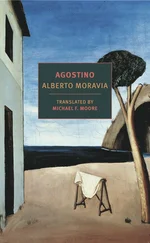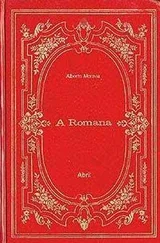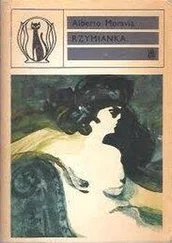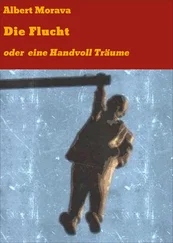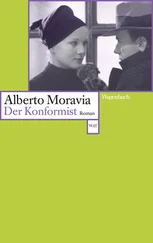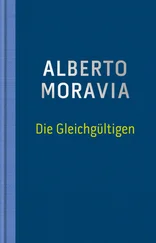I was so much absorbed in my work that I did not pay much attention to a small but curious incident that took place at that time. I have a very sensitive skin and shaving is always a difficulty to me — that is, it is always inclined to produce a rash or other irritations. For this reason I-have never been able to shave myself and have always made use, as I still do, of the services of a barber. Even at the villa, as everywhere else, I arranged to be shaved by a barber every morning. He came from the village near by, where he kept the only barber's shop, which was, in truth, a very modest one. He used to come on a bicycle, and made his appearance exactly at half-past twelve, having in fact closed his shop at twelve. His arrival was the signal for me to stop work. It coincided likewise with the best moment of my day, with the release of that indiscreet and entirely physical gaiety I have already described, which came from a sense of work well done.
This barber was a short, broad-shouldered man, completely bald from front to back, with a thick neck and a plump face. In figure he was thickset but not fat. In his face, which was of a uniform yellowish brown so that he looked as though he still had the remains of an attack of jaundice, the most noticeable feature was the eyes, large and round with very conspicuous whites, and with a clear, questioning, surprised, possibly ironical look in them. He had a small nose and a wide but lipless mouth, in which his rare smiles disclosed two rows of dark and broken teeth. His chin retreated sharply, and in it was a strange, repellent dimple, like a navel. Antonio's voice — for that was his name — was soft and extraordinarily quiet; and his hand, as I noticed from the very first day, had an uncommon lightness and dexterity. He was a man of about forty and, as I knew, had a wife and five children. One last detail: he was not a Tuscan but a Sicilian, from a village in the middle of Sicily. As the result of an amorous connexion which he had formed during his military service, he had been induced to marry and settle down in this village, where he had subsequently opened a barber's shop. His wife worked on a farm, but she left it on Saturdays and went and helped her husband to shave the numerous clients who flocked to the shop on the day before the holiday.
Antonio was very punctual. Every day at half-past twelve I could hear, through the open window, the crunching of the gravel beneath his bicycle wheels in the drive below; and this, for me, was the signal for breaking off work. A moment later he would be knocking at the door of my study; and I, rising from my desk, would shout joyfully to him to come in. He would open the door, enter, close it again carefully and, with a slight bow, wish me good morning. With him came the maid, carrying a small jug of boiling water which she would put down on a little wheeled table where soap, brush and razors were laid out. Antonio would push this little table close to the armchair in which I, in the meantime, had seated myself. He would spend some time stropping the razor, with his back turned to me; then, having poured some of the hot water into a small basin, he would wet the brush and stir it round and round for a long time in the soap-bowl. Finally, holding up the foamy brush in the air like a torch, he would turn towards me. The process of soaping me was interminable; he never left off until the whole of the lower part of my face was enveloped in an enormous mass of white froth. Only then did he put down the brush and take up the razor.
I have described these perfectly ordinary actions in minute detail so as to give a feeling of the slowness and precision of his movements — and at the same time to convey an idea of the readiness of my own mind to endure, in fact to enjoy, that slowness and that precision. Usually I do not enjoy being shaved, and the stupid fussiness of some barbers irritates me. But with Antonio it was different. I felt that the only time that had any value was the time that I spent at my desk, before his arrival. Afterwards, whether the time was devoted to shaving, or to reading, or to conversation with my wife, it was all the same to me. It was all time that did not count, from the moment that it had nothing to do with my work; and how I employed it was a matter of in-difference to me.
Antonio was taciturn; I, on the other hand, was not, for, after the restraint and the effort of my work, I felt an irresistible need for some sort of outlet for my happiness. And so I talked to him about anything that came into my head, about life in the village, about its inhabitants, about the harvest and his family and the local gentry and things like that. One subject that interested me more than others was, I remember, the contrast between the barber's birthplace in the south and his country of adoption. Nothing could be more different from Sicily than Tuscany. And indeed, more than once, I succeeded in drawing curious remarks from him about Tuscany and the Tuscans in which I thought I could detect a tinge of contempt and disgust. But for the most part Antonio would answer with extreme sobriety; yet, as I noticed, with remarkable exactness. He had a way of speaking that was terse, reticent, sententious, perhaps ironical, but with an irony so slight as to be intangible. Sometimes, if I was roaring with laughter at one of my own jokes or if I became heated as I was speaking, he would stop soaping my face or shaving me and, holding the brush or the razor in mid-air, would wait patiently until I was silent and calm again.
IN talking to him, I had no definite purpose in mind, as I think I have already made clear; yet, after some time, I realized that, in spite of all the confidences I had forced from him, I had never penetrated the centre of his mind nor fathomed its chief preoccupation. Although he was poor and had a large family, he did not seem to worry much about money. He spoke of his family with detachment, without either affection or severity or any other particular feeling, as one speaks of something inevitable and perfectly natural. In politics, as I at once saw, he took no interest at all. His trade, although he knew it thoroughly and liked his work, did not appear to mean anything more to him than the mere means of earning a living. In the end I said to myself that there was something mysterious about him; but not more so than in the case of many people of the working class, to whom wealthier people like to attribute thoughts and cares that match their position and then find that they are engrossed by the same things that matter to everybody.
While Antonio was shaving me, my wife would usually come into the room and sit in the sun in the open window, with her manicure-case or else a book. I do not know why, but this morning visit of my wife's while Antonio was shaving me gave me great pleasure. Like Antonio, she was a mirror in which I gazed at the reflection of my own happiness. Like Antonio, though in a different manner, by coming in and sitting down in the room where I had just been working, she helped to carry me back into the atmosphere of everyday life — I mean that indulgent, calm, ordered atmosphere which permitted me to go forward with my work in security and tranquility. Every now and then I would interrupt my chatter with the barber and ask her how she was, or what book she was reading, or what she was doing. She would answer quietly, soberly, without raising her eyes and without breaking off her reading or the filing of her nails. The sun shone on her fair hair falling loose in two long waves on either side of her face; behind her bent head I could see, through the wide-open window, no less luminous, the trees in the garden and the blue sky. This same sunshine awakened tawny reflections in the furniture, darted blinding rays from Antonio's razor, and spread benignly from the window-sill to the most distant corners of the room, bringing to life the faded colours and dusty surfaces of the worn stuffs and the old tables and chairs. I was so happy that I thought, on one of those mornings: 'As long as I live, I shall remember this scene. . myself lying back in the armchair, with Antonio shaving me. . the window open, the room filled with sunshine and my wife sitting over there, in the sun.'
Читать дальше
